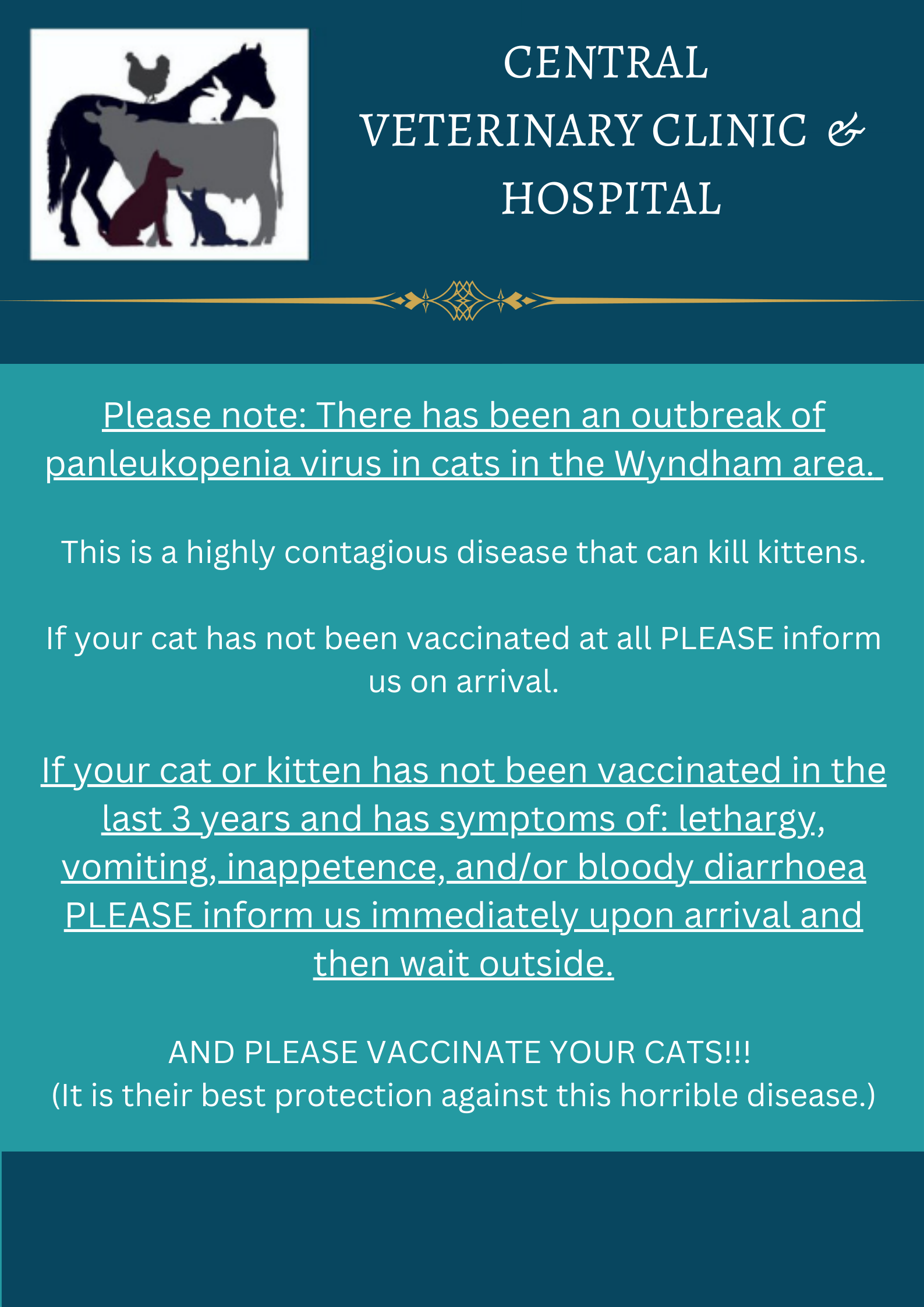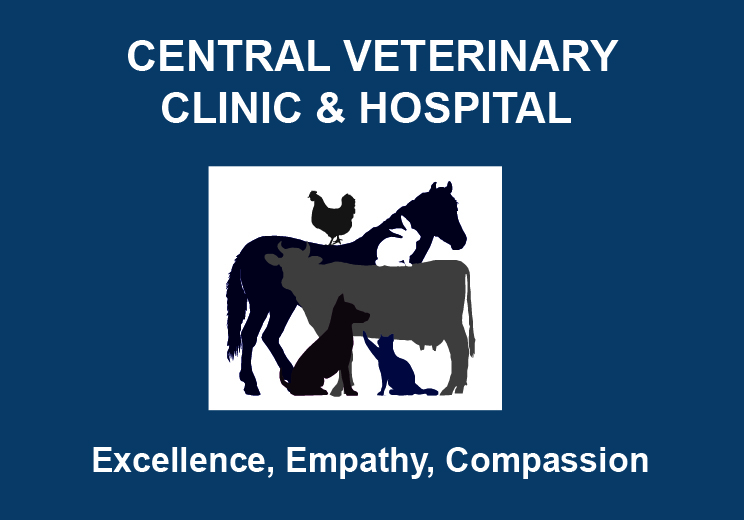Panleukopenia virus outbreak in Wyndham council area
Panleukopenia virus is a highly contagious disease of kittens and cats. It is similar to parvovirus in dogs. There is currently a disease outbreak in the Wyndham council area, possibly due to the recent vaccine shortage. As such, we are seeing both kittens and unvaccinated adult cats coming in with the virus.
The virus has two main effects:
- It damages the lining of the intestines and can cause inappetance, vomiting, and diarrhoea. In severe cases, the diarrhoea is bloody, runny, and very smelly.
- It destroys the immune cells, the cells involved in fighting infection. This makes it harder for infected cats to fight disease and can also cause other opportunistic infections.
- For kittens infected whilst inside their mother as a foetus, or if infected very shortly after birth, the cerebellum can be damaged, This is the part of the brain involved in fine motor function and balance. Infected kittens that survive have ongoing balance problems and a life-long intention tremor.
Vaccination provides excellent protection
The virus is entirely preventable with the standard kitten and cat vaccination, the F3 or F4 vaccine. Please vaccinate your kittens and cats. Kittens need three vaccinations from 6 weeks of age. Older kittens and cats needs two vaccination spaced a month apart. Boosters are then given yearly.
Visiting a vet clinic – infectious disease protocols
Once an infected kitten or cat enters a veterinary clinic, a whole infectious disease protocol must be followed to ensure the virus is not spread to other animals, particularly young kittens that are not yet fully vaccinated. The virus is very hardly and can stay around for a long time in the environment. As such, any infection must be identified promptly, contained to one area, and the whole area and clinic disinfected with strong disinfectants to destroy the virus. This is an expensive and labor-intensive process, made worse if an infected kitten and their owners have wandered around and touched everything!
How you can help?
- Please ensure your cats are vaccinated.
- If your kitten or cat is not vaccinated, please let us know upon arrival.
- If your kitten or cat is not vaccinated, and has signs of possible infection (inappetance, lethargy, vomiting, and/or diarrhoea), please inform us immediately upon arrival and wait outside until you can be taken directly into a consult room. (Try not to touch anything.)
- If infection is a possibility, we can conduct a bedside test of the poo to check for the virus. If this is positive, we will then discuss options.

